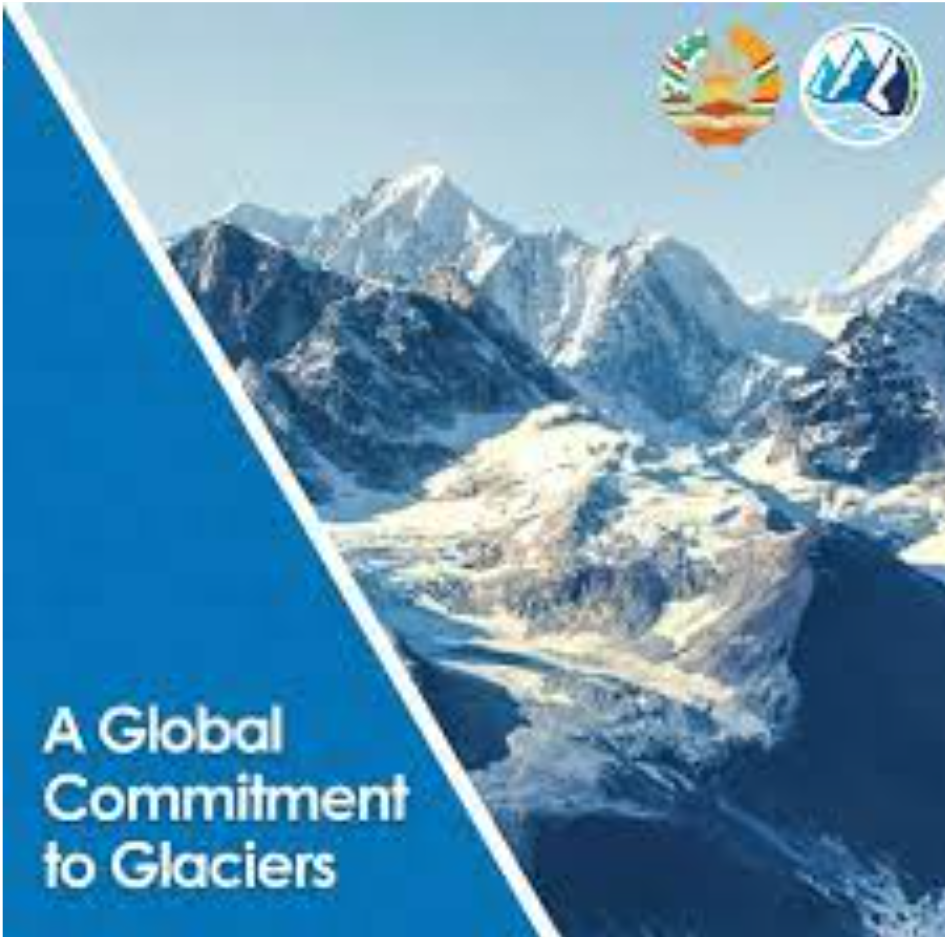-
- By Ahsan Ansari
By the year 2100, one-third of the Earth’s glaciers could disappear. This alarming prediction has come to light as world leaders, including Pakistan’s Prime Minister Shehbaz Sharif, gather in Dushanbe, Tajikistan, for a major environmental summit. This High-Level International Conference on Glacier Protection is part of the United Nations’ declaration of 2025 as the “International Year for Glacier Preservation.” The aim of the conference is to formulate a collective strategy to tackle the global crisis of melting glaciers.
Glaciers are often referred to as the silent guardians of climate change because they hold 75% of the Earth’s fresh water. However, they are now melting at an unprecedented rate. Experts warn that the Hindu Kush-Himalayan region could lose up to two-thirds of its glaciers by the end of this century, threatening water sources for over two billion people. In Tajikistan, where the conference is being held, more than 1,000 glaciers have completely vanished in recent decades, including the Wanch Yakh Glacier, which has retreated by one kilometer and shrunk by 44 square kilometers since 1950.
Over the past three years, all monitored glaciers worldwide have been retreating, and five out of the last six years have seen glacier melting at record levels. This process is not only causing sea levels to rise but also posing severe threats to coastal areas, increasing the risk of glacier lake outburst floods, and creating crises in water supply, agriculture, and energy. About 40% of the world’s agricultural irrigation relies on glacier-fed water.
The official opening of the conference took place on May 29 at the Kokhi Somon complex in Dushanbe, where over 1,000 delegates, including government representatives, scientists, environmental experts, local community leaders, and members of international organizations, came together. A shared commitment emerged to take urgent and collective action to safeguard these vital sources of freshwater for humanity.
A key expected outcome of the conference is the “Dushanbe Glacier Declaration,” which would commit nations to expanding glacier monitoring networks, establishing early warning systems for potential glacier lake outbursts, and creating a new “Glacier Protection Trust Fund” under the United Nations. This declaration is expected to be presented at the upcoming COP30 in Brazil.
During the conference, UNESCO and the World Meteorological Organization (WMO) announced the launch of a global decade for Cryosphere Sciences from 2025 to 2034. The initiative will integrate satellite data with indigenous knowledge to improve predictions and responses to water scarcity.
The conference also addressed local and regional risks, especially in Central Asia, where melting glaciers could trigger international water disputes. Sessions were held under IUCN to promote transboundary water cooperation.
On a local level, Tajikistan recently observed a “Month for Glacier Protection,” which included school art competitions, radio programs, and youth-led awareness campaigns—demonstrating that environmental protection is possible not only at the global level but also through local engagement.
The conference also discussed practical initiatives such as the installation of early warning systems in regions like the Himalayas and Andes, and the reactivation of Tajikistan’s 5,000-meter-high Gorbunov Observation Station. Special attention was given to empowering women in water policy decision-making, as they are disproportionately affected by water shortages.
Maria Shahgedanova of the Mountain Research Initiative stated, “Glacier protection is not just an environmental issue—it is a matter of human security.” Her words underscore the urgent need for immediate action and global solidarity.
So far, the conference has emerged as a major milestone in global environmental diplomacy. Although glaciers are rapidly retreating, the unity, scientific insight, and political will demonstrated at this summit offer a strong glimmer of hope. From Norwegian glaciologists to local farmers in the Pamirs, all are united for a common cause. However, confronting this crisis will require unprecedented global cooperation. Developed nations must provide financial support and technical resources, drastically reduce carbon emissions, and every individual must support decisions and policies that ensure the survival of glaciers.
In his concluding speech, Tajik Prime Minister Kokhir Rasulzoda said: “The death of a glacier is not just the end of ice, but the unraveling of ecosystems, economies, and peace.” His words reflect the spirit of the Dushanbe Appeal—that the time has come for all of us to unite in securing our shared future.




